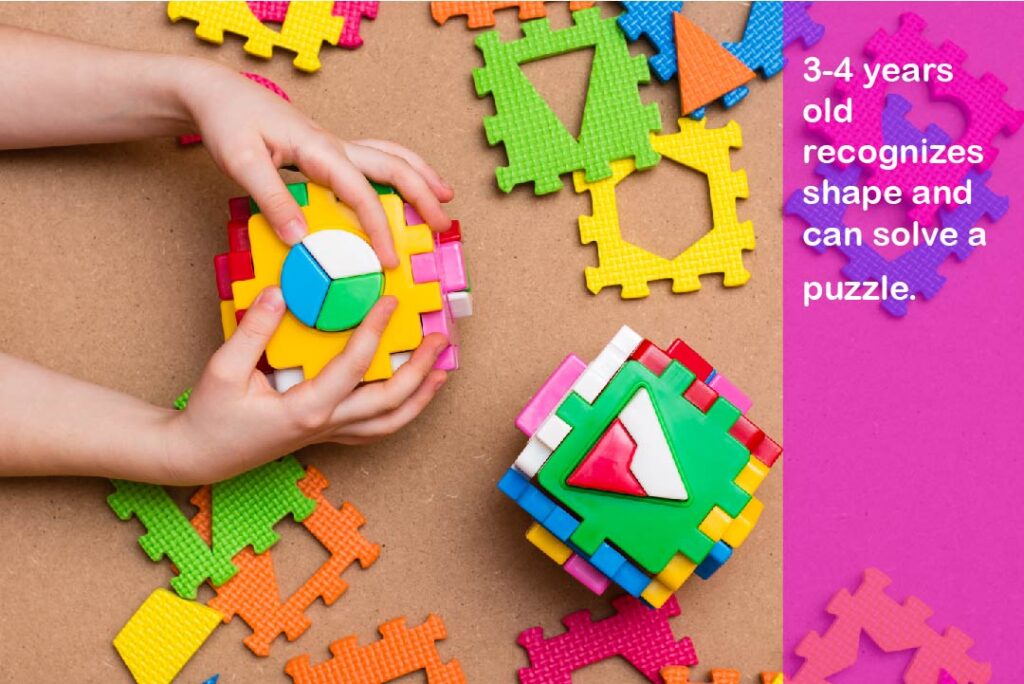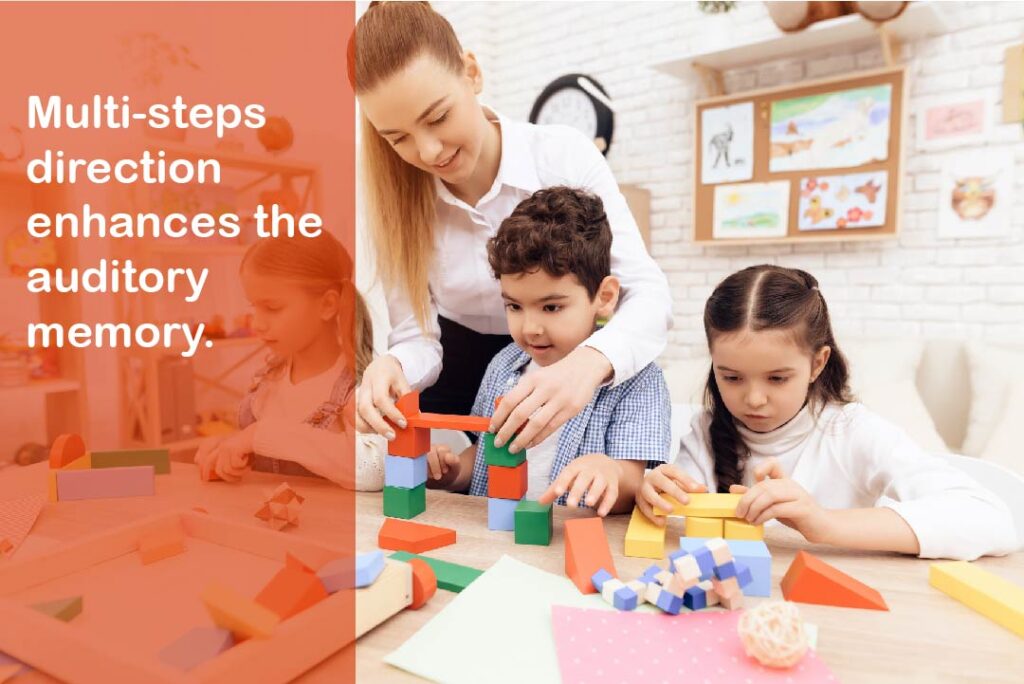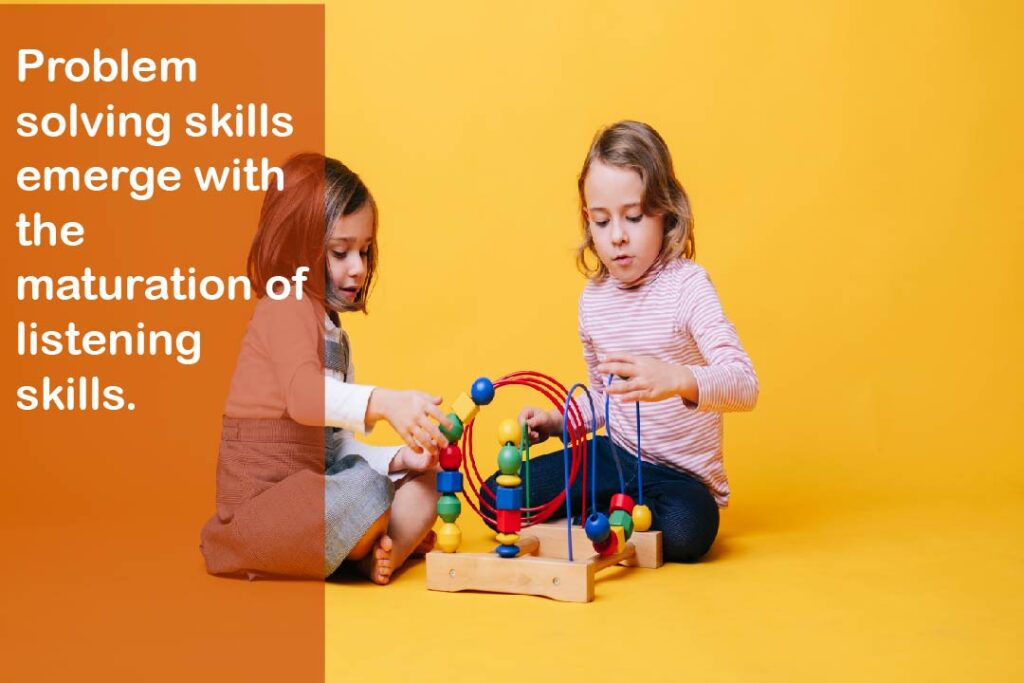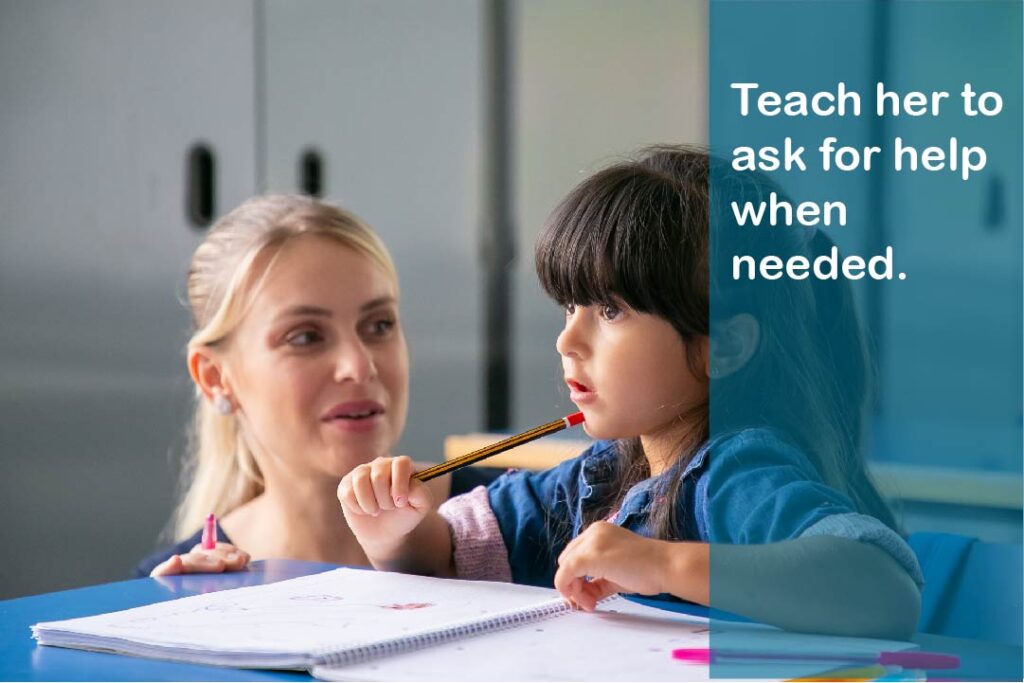Listening Skills & Auditory Milestones : 3-5 Years old.

Most children achieve auditory milestones and sharpen their listening skills at their own pace. However, there are specific age ranges for each milestone; therefore, your child might not have developed all or most of the skills until the end of his particular age range.
What should your 3 to 4 years old have the option to do with regards to his Auditory abilities?
Auditory Milestones & listening skills 3 to 4 years
Hearing and Comprehension:
Following are most probably the best indicators for the development of or (intact) auditory skills.
- First and foremost, the child may respond to you when called from another room.
- Secondly, when asked for colors, your child comprehends them and points to them, locates them, or brings them.
- The third auditory milestone is that he can show responding shapes to you if asked for different shapes.
- A 3-4 years old toddler understands and recognizes family members and can call them, e.g., mom, brother, sister, grandmother, and aunt.
- The child at this stage may recognize 3 to five shapes; however, he likes circles and squares.

Also read: http://terteeb.org/blog/2021/05/27/pediatric-auditory-milestones-birth-to-2-years/
Listening & Verbal Communication Skills:
- The good thing is most people you know will be able to understand what your child says. His speech is more clear and intelligible.
- As the auditory skills mature, your child’s confidence prompts. He can ask when and who questions. He understands the meaning of what do you want?
- Now provided (proficient auditory abilities), your child may answer simple questions including what, and where questions.
- Because of his flourishing vocabulary, the child’s verbal communication may include a few plural words, like birds, cars, toys, birds, and boys. He can put 4 words together to make a phrase. Our children can now even make some mistakes during verbal communication, like “I goed to school.”
- The child may acquire narration skills by now. He understands, “how was your day?” hence, he can retell his day.
- He even may be able to use 4 sentences at a time. He may say and recognizes rhymes like a bat–rat, as with auditory maturation, he is acquiring phonemic awareness.
- As a result of his auditory skills, your child may be able to use pronouns such as you, I, me, we, even they.
Helpful Parental strategies to strengthen Listening Skills
here we bring you some highly effective strategies to employ for the enhancement of Auditory Skills of your children.
1. Silly Pictures Game:
You may cut out images from previous magazines to make a few silly pictures by sticking parts of varying pictures together. Like, you can cut out an image of a cat and glue it with the part of a vase. Moreover, you can discuss the silly element in the picture with your child.
2. Picture Sorting Game:
Sort out pictures and objects into different categories, such as animals, food, shapes, or professions. Then, request your child to identify the object or picture that does not fit in the category. For instance, a car does not belong with the food.
3. Making Rhyming Words
You can sing, read, and discuss your daily routines using rhyming words. This activity will enhance your child’s vocabulary and verbal communication skills, such as sentence formation.
4. Reading, Enacting And Retelling Stories
Reading stories from simple, colorful, and short books is another beneficial activity that enhances your child’s auditory and verbal skills. Parents can tell their children about their favorite parts of the story while asking about children’s favorite part. You can also try helping your child retell the story or enact using props and dressing up with colorful clothes.

5. Family Pictures:
Another fun activity for auditory skill enhancement is discussing old family pictures. Let’s children recall and narrate stories about the people they see in them.
6. Questioning Game:
Playing the questioning game is another exciting and fun activity for auditory verbal skill development. In the first round, you may have the child try to fool you with his questioning you.
Furthermore you can also help your child understand better by asking him some questions. Make this a fun and exciting game by pretending that some of child’s questions really fool you.
Also see this: http://terteeb.org/blog/2021/05/28/auditory-milestones-from-2-3-years-old/
What should your 4 to 5 years old have the option to do with regards to his Auditory abilities?
Auditory Milestones & Listening Skills 4 to 5 years
Listening skills, cognitive milestones & comprehension:
- During this stage, one of the first indicators of your youngster’s auditory skills maturation is understanding that he can categorize sequence like first, next, and last.
- Additionally, at this phase, our children may categorize according to size, i.e., big, small, tall, short, etc.
- Understanding words used for a time, such as today, tomorrow, and yesterday also develops during this time.
Auditory memory
- The newly school-going child now retains enough information of what s/he hears at home or in school.
- As a result, of his auditory memory at home, he follows multi-step commands, including “Wash your face, brush teeth, wear your nightsuits and go to bed.”
- Secondly, s/he follows confidently multi-step classroom directions, such as “color red something that is not an animal”.
- Additionally, the child can label call-out names, numbers, and letters.

Intelligible speech
Furthermore, s/he can utter clearly most of the high-frequency occurring speech sounds of native language while using words to communicate.
Replies to you when you speak to him:
Because of his auditory memory and figure ground discrimination skills s/he may respond to your questions.
Listening skills Communication Milestones
1. No repetitions while communicating:
The child can communicate mostly now without repeating sounds or words. The rate of speech is intelligible and appropriate.
2. Communicate with lengthier and complex sentences:
Most importantly at 5 years of age your school going child can use sentences containing more than 1 action word in them, like run, walk and kick.
3. Less mistakes:
Moreover the child May make a few mistakes while talking such as ““Zars gots 2 sisters, but I have one”.
4. Tell short stories:
Young boys or girls at this stage may be able to tell some short stories however with a few mistakes here and there.
5. Variety in speaking manners:
The ability to talk in various ways is also developing during this age.
6. Communicate with younger children:
Consequently, your child may be able to use a few short sentences with children younger than him even though s/he may speak louder outside than inside.

How can you as a parent help your child to strengthen auditory milestones & listening skills
1. Discuss about concept of space:
Firstly, you as a parent can talk to your child about where things are located in space, using such words as right, left, middle or center, first, next to or last, right and left, in or on or out, etc.
2. Discuss opposites
The next great activity would be to say something about opposites or antonyms like down or up, short or tall, small or big etc.
3. The guessing game:
Moreover, playing the guessing game with your child of this age increases his vocabulary along with listening attention & skills.
4. The categories game:
You can divide objects into categories and have your child pick out the object that is not sorted accordingly. Furthermore, you can discuss with him/ her why the object does not belong there.
5. Follow your child’s instructions:
You can also have your child give you instructions on something, and you follow them. In addition, to improve auditory skills this activity is helpfull to introduce leardership skill to your youngster. You can tell them about a word or direction s/he needs to say correctly as you are -followed due to the wrongly spoken instructions.
6. Build his/her confidence:
Most importantly, it would help if you built his/her confidence by paying attention to what s/he is saying. You may reply to him by praising and encouraging him as the child talks. You can also listen quietly when talks and get their attention before you talk so that s/he is well aware that his/her speech and words are significant to you.
Keep teaching your child new words. Define words, and help your child understand them. For example, say, “This vehicle is on the highway. It is a car. A bus is another kind of vehicle. So are a train and an airplane.”
7. Asking for help:
Furthermore, you can let the child know that it is ok to ask for help if he comes across a word or phrase they are having difficulty saying or what it means.

8. Predictions in stories:
Readout stories to your children that are easy to follow for them. While helping them predict and guess what may happen next in the story? Moreover, you can also act out your child’s favorite stories or put up a puppet show. Your child can even draw a picture of any scene from a story. In addition to all this, you can ask W5 questions about the story, such as why, what, what, where, and when.
9. Plan Daily activities:
Your child can plan daily activities like planning for an event, making grocery list or planning menus.
10. Simple understandable language:
Most importantly, if you are a bilingual or multilingual family, please speak with your child in the language s/he is most comfortable in speaking.
Conclusion:
We hope our auditory milestones series has been fruitful for you. Do let us know of any issues your child may be facing, and maybe our experts can provide guidance accordingly.
References:
Bavin, E. L., Grayden, D. B., Scott, K., & Stefanakis, T. (2010). Testing Auditory Processing Skills and their Associations with Language in 4—5-year-olds. Language and Speech, 53(1), 31-47.
Koroleva, I. V., Solodovnik, M., Levin, S. V., & Levina, E. A. (2018). Development of auditory, verbal and communicative skills in CI children with autistic disorder. Journal of Hearing Science, 8(2).



0 Comments